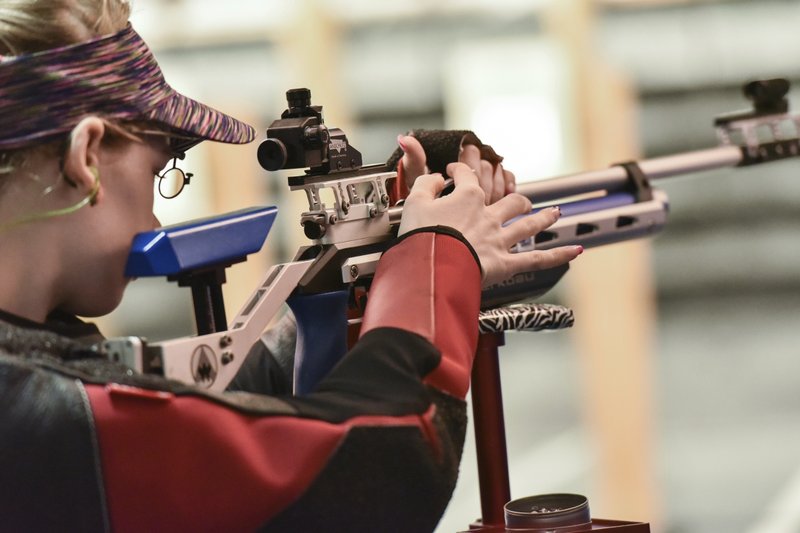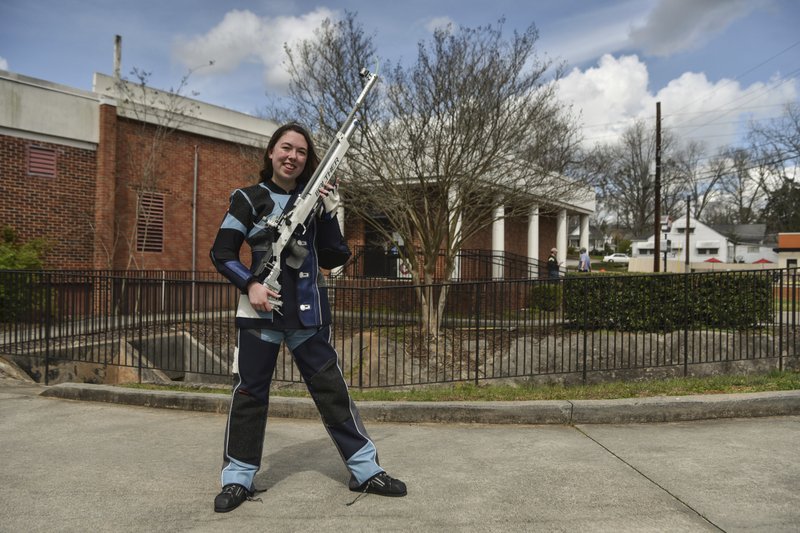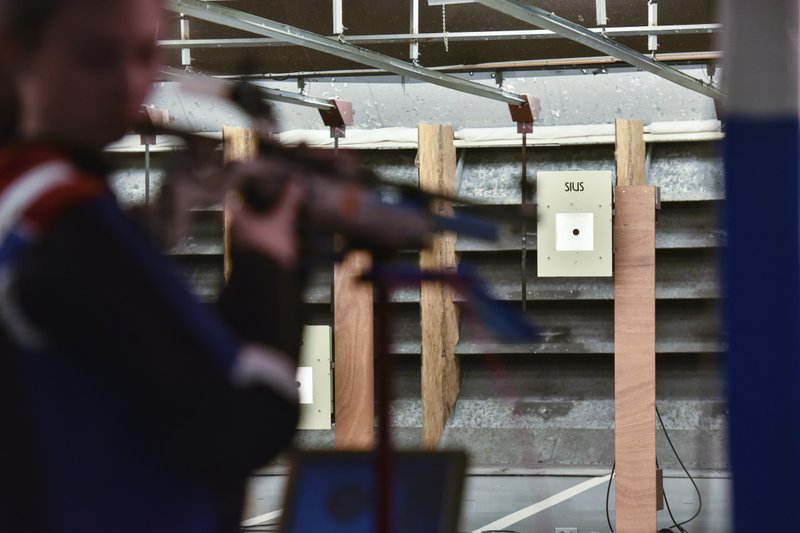
(Photo: AP)
Their classmates took to the streets to protest gun violence and to implore adults to restrict guns, seeming to forecast a generational shift in attitudes toward the Second Amendment. But at high school and college gun ranges around the country, these teens and young adults gather to practice shooting and talk about the positive influence firearms have had on their lives.
What do they say they learn? Patience. Discipline. Responsibility.
“I’ve never gone out onto a range and not learned something new,” said Lydia Odlin, a 21-year-old member of the Georgia Southern University rifle team.
There are an estimated 5,000 teams at high schools and universities around the country, according to the National Shooting Sports Foundation, and their popularity hasn’t waned despite criticism after it emerged that the gunman who killed 14 students and three staff members at a Florida high school had been a member of the JROTC rifle team. The youths who are involved, coaches and parents say there’s an enormous difference between someone bent on violence and school gun clubs that focus on safety and teach skills that make navigating life’s hardships easier.

Lydia Odlin at a gun range. (Photo: AP)
The clubs use a variety of firearms — from air rifles that shoot pellets to 9 mm pistols that fire bullets. Its members invest hundreds of dollars in specialized stiff uniforms and shoes that provide stability and support for spending hours standing, kneeling or lying prone to fire at targets down range. Some have hopes of representing the US in the Olympics. Some simply love the camaraderie and mental focus required.
On a recent weekend, close to a dozen high school and college gun team members gathered at the University of North Georgia in Dahlonega to work with JP O’Connor, a coach affiliated with USA Shooting, the Olympic organization. For the first hour he only talks — not about techniques or scores, but about mental strategy.
“I want to encourage you to be self-aware and to be disciplined about what you’re doing,” he said. “If you are patient with yourself, life is a lot easier — or less difficult.”
Many of the students came with their parents. All of them say they have no qualms about putting a firearm in the hands of kids, many of whom are too young to drive a car, vote or buy alcohol.
“So many people have assumed — and I picked that word on purpose — that guns are bad,” O’Connor told The Associated Press. “Some people are, ‘I can’t believe you’re teaching kids to shoot.’ Well, I’m not teaching kids to shoot. I’m teaching kids life skills. And I’m teaching them about a topic that is very contentious ... and when we educate people about something and they’re not ignorant about it, then we’re actually safer.”
Emily Clegg from Monroe accompanied her 16-year-old daughter, Ashley, to O’Connor’s session. Clegg said that in the two years Ashley has been involved in the JROTC program, she’s seen “tremendous, positive things” happen to her, from motivation and leadership to learning to set goals.
Everyone is upset by gun violence, “but I don’t think what students are doing here will lead to that,” Clegg said.
Mike Lewis, who started the Carrollton High School team, recalled bringing his .22-caliber rifle to school in the 1980s. He might open up the trunk in the school parking lot to show it off to his classmates or one of the teachers. “Now there’s a whole knee-jerk reaction based on ignorance and misunderstanding,” he lamented.
It’s a unique sport that doesn’t attract typical jocks, he said. Rather than brawn, it’s a very brainy sport, and he’s proud that most of his team is made up of straight-A students.
Kevin Neuendorf, the director of marketing communications at USA Shooting, said views toward school gun clubs are part of the cultural divide in the country.
“There are a lot of misperceptions out there about the gun culture and all that, but for many it’s just a way of life. Most people who are shooters, respect the sport and respect the game and have a respect for the firearm they shoot and for the people around them,” he said. “I question anybody who can’t go out to a gun range and have fun. That’s the way our athletes see it and that’s the way our sport is built.
“It’s no different than playing basketball or soccer. ... For our athletes and for our club members and for our parents, that gun is no different than Serena’s tennis racket ... and through that gun and through that firearm, what comes? Unbelievable discipline, opportunity, showing them success. Not every kid can be successful at basketball or football.”
Odlin grew up in Maine, a microcosm of the country’s divisions over guns. In the northern, more rural parts of the state, hunting is more prevalent. But in the southern, more-populated part, she said, she wasn’t even allowed to wear her rifle team’s T-shirt in high school.
“Overall, it was something you just didn’t talk about. You just kind of avoided the topic of guns,” she said.
As soon as she moved to Georgia, she was greeted with more acceptance.

In this photo taken Saturday, March 17, 2018, in Dahlonega, Georgia, a student stands at the bay of a gun range at the University of North Georgia, a target yards away. In the wake of the shooting at a high school in Parkland, Florida, some Americans are questioning whether school gun clubs are wise. But those who participate, say it teaches them discipline, patience and life skills. (Photo: AP)
“You say you’re on a rifle team, there’s no negativity surrounded by it. It’s, ‘Oh cool. What do you shoot? How far do you shoot?’”
Few go on to compete at the college level. After spending time working at a range and honing her skills, Odlin made the team in her second year. What she learns on the range, she said, has helped her in untold ways.
“You can’t become a quality shooter without becoming a quality person off the range too. The amount of focus just blends right into schoolwork,” she said.


